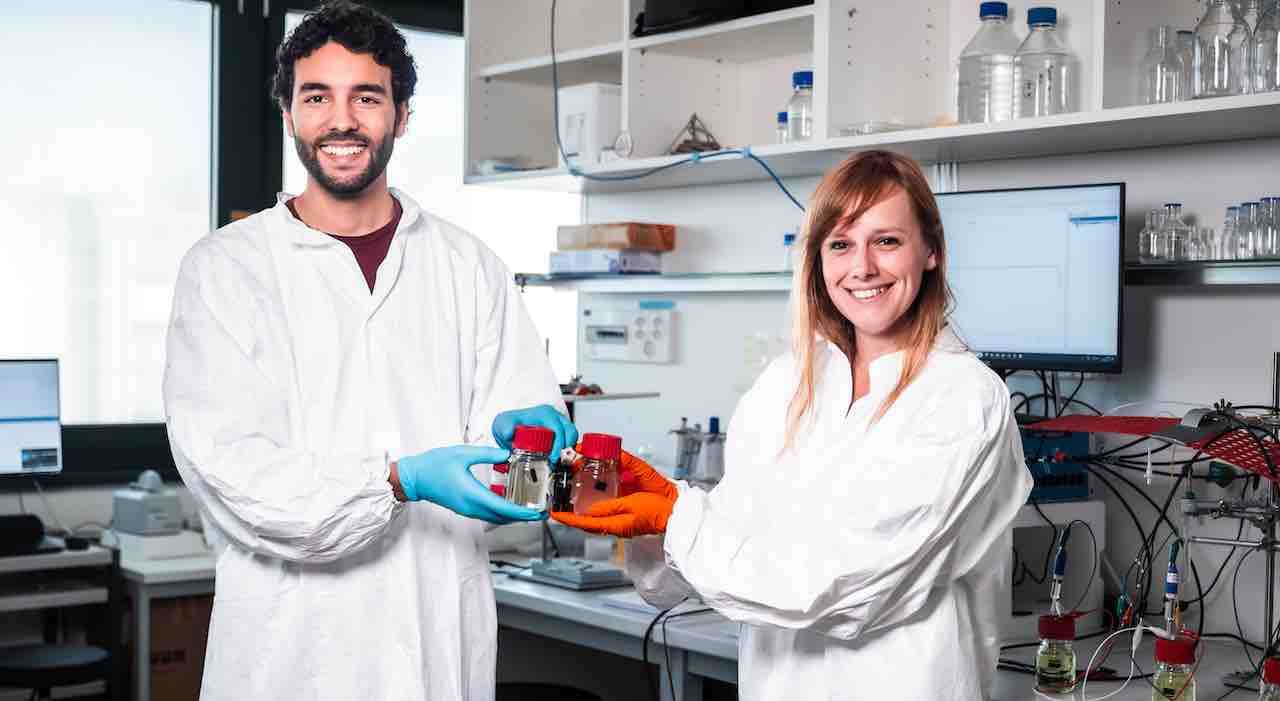Early Humans Were Serial Heartbreakers: Unknown 'Ghost Ancestor' Appears in Analysis of Genome
Studying the human genome using AI, scientists have discovered a third human ancestor, completely unrelated to Denisovans or Neanderthals.

Scientists have managed to generate electricity from the deadly E-coli bacteria—a finding that could lead to a valuable by-product from waste water.
Bioelectronic experts from the Ecole Polytechnique Federale de Lausanne (EPFL) engineered the bacteria to produce electricity in a variety of settings.
The team used a process known as extracellular electron transfer to engineer the bacteria to make them highly efficient electric microbes, leading to a three-fold increase in electrical current generation compared to conventional strategies.
"Instead of putting energy into the system to process organic waste, we are producing electricity while processing organic waste at the same time, hitting two birds with one stone," said Ardemis Boghossian, a professor at the Swiss university.
According to the study published in the journal Joule, the researchers were able to create a complete EET pathway within E. coli, a feat never achieved before.
"We engineered E. coli bacteria, the most widely studied microbe, to generate electricity," Prof. Boghossian said. "Though there are exotic microbes that naturally produce electricity, they can only do so in the presence of specific chemicals.
"E. coli can grow on a wide range of sources, which allowed us to produce electricity in a wide range of environments, including from waste water."
Unlike previous methods the bioengineered E. coli can produce electricity while metabolizing a variety of organic substrates.
By integrating components from Shewanella oneidensis MR-1, a bacterium famous for generating electricity, the researchers successfully constructed a pathway that spans the inner and outer membranes of the cell.
The engineered E. coli was then tested in brewery wastewater where unlike similar electric microbes, it thrived. They believe this shows its potential for large-scale waste treatment and energy production.
"We tested our technology directly on wastewater that we collected from Les Brasseurs, a local brewery in Lausanne," said Boghossian.
"The exotic electric microbes weren't even able to survive, whereas our bioengineered electric bacteria were able to flourish exponentially by feeding off this waste."
The implications of the study extend beyond waste treatment.
They believe that the engineered E-coli can be used in microbial fuel cells, electrosynthesis, and bio-sensing.
The bacterium's genetic flexibility means that it can be tailored to adapt to specific environments and feedstocks, making it a versatile tool for sustainable technology development.
Lead author and doctoral assistant Mohammed Mouhib, added: "Our work is quite timely, as engineered bioelectric microbes are pushing the boundaries in more and more real-world applications.
"We have set a new record compared to the previous state-of-the-art, which relied only on a partial pathway, and compared to the microbe that was used in one of the biggest papers recently published in the field.
"With all the current research efforts in the field, we are excited about the future of bioelectric bacteria, and can't wait for us and others to push this technology into new scales."
SEE ALL the Science Breakthroughs here on WS…
Be the first to comment